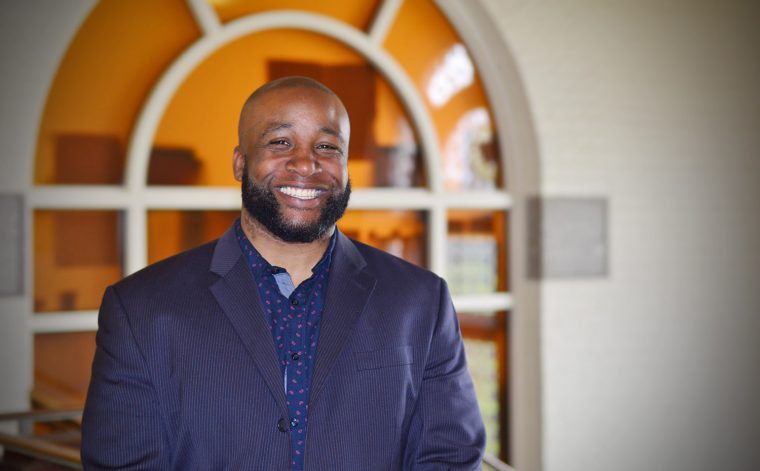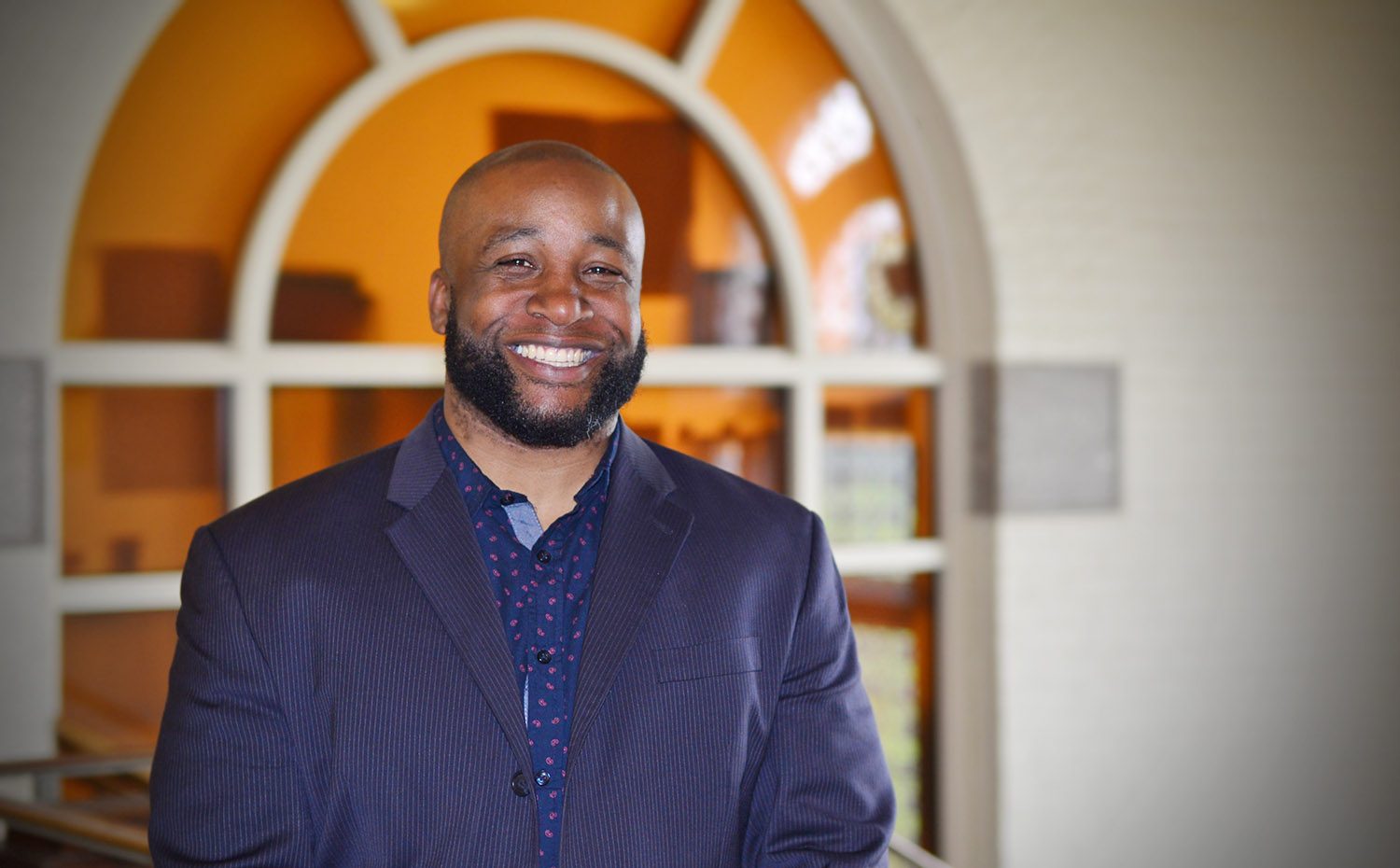Watson Directs the Jewett Center for Community Partnerships


In this Q&A, we speak to Clifton Watson, who joined Wesleyan as director of the Jewett Center for Community Partnerships (JCCP) in February. A New Haven, Conn., native, Watson holds a BA from the University of Connecticut in African American studies, an MA from North Carolina Central in history, and a doctorate from Fordham in history. His dissertation explores the northern migration of African Americans who settled in the Newhallville area of New Haven—which is where he grew up.
Q: Please tell us a bit about your background . . . what drew you to Wesleyan? How did you know this was the place for you?
A: I credit my career to an experience I had during the summer before my freshman year in college. I responded to an ad to be a summer camp counselor in New Haven (which is where I grew up). My primary interest was in earning some money to offset some of my college expenses. I envisioned facilitating recreational activities and leading field trips. However—unbeknownst to me—I had applied to become a staff member of LEAP (Leadership, Education, and Athletics in Partnership). The organization, which was in its inaugural year—was committed to supporting the academic and leadership development of young people from some of the city’s most impoverished neighborhoods. This was not your typical summer camp—in fact it was a program, with a summer component. The organizers had been very thoughtful and strategic in the development of its program design and the stakeholders recruited to support their work.
The program was the brainchild of a Yale undergrad and law student—and supported by Dwight Hall (the JCCP’s institutional counterpart at Yale). This program created a “community” of diverse stakeholders united by their interest in improving outcomes for youth and city residents. This jumpstarted my interest in leadership development and civic engagement and remains a shining example of a university-led—but cocreated with the community and mutually beneficial—project.
I was drawn to Wesleyan’s Jewett Center for Community Partnerships because each one of its projects has the same transformative potential I saw in the LEAP experience.
Q: What are you most excited about?
A: I am most excited about further harnessing student enthusiasm and willingness to engage with the greater Middletown community—while ensuring that the center continues to be supportive of student leaders (in both their professional and leadership development) and that the JCCP projects are effectively responsive to community needs. As I have recently moved to the area (Meriden), I am super excited about contributing to the civic fauna of my own community.
Q: What has been the biggest surprise in your time with Wesleyan?
A: Wesleyan students have a reputation (which stretches far) for being enthusiastically committed to civic engagement. This was on full display as soon as I arrived on campus. I was struck by the number of students who emailed, called, and dropped by to greet me and ask questions about my plans for the Jewett Center or discuss an idea for a program or event. In fact, the week before I officially started, I came to campus to briefly meet with Marc Eisner [Dean of Social Sciences and Henry Merritt Wriston Chair of Public Policy]. When Marc walked me over to Allbritton Hall to show me my office space, I was met by a student reporter from the Argus, who somehow learned I was on campus! She wanted to interview me and discuss my vision for the JCCP. Overall, I’ve been surprised by the pure number of projects being led by Wesleyan students and thoughtfulness with which they approach their work.
Q: And what are your hobbies? What do you do in your time off?
A: Over the past three years, I’ve really gotten into gardening. I can’t say that I have a green thumb—but I’ve had a ball learning through trial and error. I’m committed to having a solid sweet potato crop! Gardening is one of those things my grandparents and parents were into and encouraged me to learn about, but I just couldn’t get into when I was younger. Years later, I’m begging for advice! In some ways, I am “late to the party,” but glad I finally decided to take an interest.
Q.: What is your favorite book?
A: My favorite book is All God’s Dangers: The Life of Nate Shaw, by Theodore Rosengarten. All God’s Dangers is the autobiography of a black tenant farmer from east-central Alabama, who came of age in a society of former slaves and slaveholders. This is the narrative of a common man moved to confront the injustices that limited his economic and political freedoms. Through the book, he recounts dealings with landlords, bankers, fertilizer agents, mule traders, gin operators, sheriffs, and judges—detailing stories of the social relations of the cotton system, while offering his rationale for joining a tenant farmers union in the early 1930s. I’ve found this to be a compelling narrative about an “everyday person” who first developed an analysis of a pretty complicated economic and political system, then moved into action to confront it—despite the certainty that his efforts would be met with brutal violence. This has always been a favorite of mine because it recognizes the enduring and complex—though infrequently highlighted—resistance culture and organizing tradition which undergirds the black experience in America.

